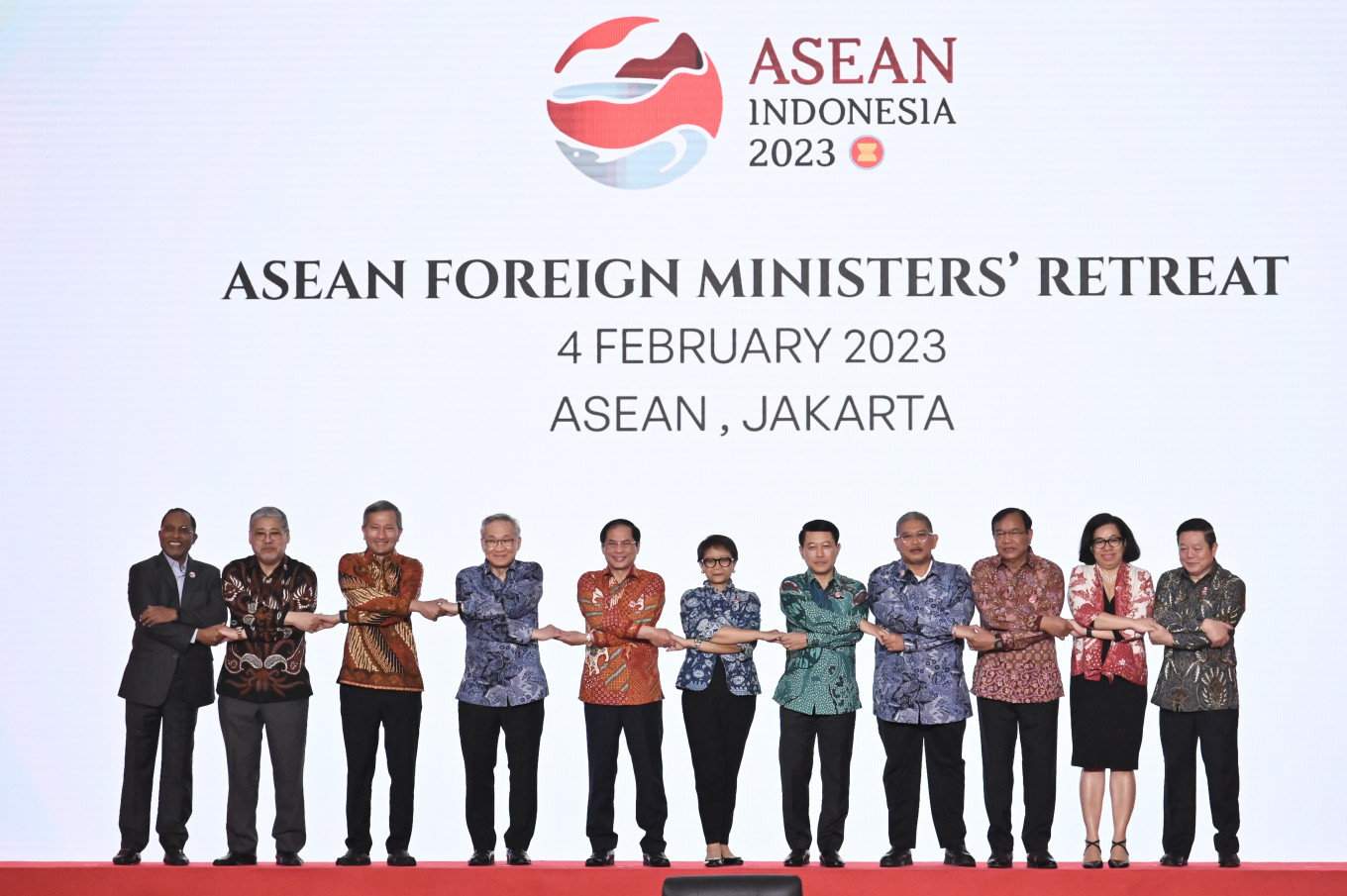Popular Reads
Top Results
Can't find what you're looking for?
View all search resultsPopular Reads
Top Results
Can't find what you're looking for?
View all search resultsIndonesia determined to ensure ASEAN collaboration for food security
The ASEAN Foreign Ministers’ Retreat (AMM Retreat), held in Jakarta on Feb. 4, revealed an urgent need to address food security through collaborative programs amid global uncertainties,
Change text size
Gift Premium Articles
to Anyone
T
he ASEAN Foreign Ministers’ Retreat (AMM Retreat), held in Jakarta on Feb. 4, revealed an urgent need to address food security through collaborative programs amid global uncertainties, recognizing food security as a shared responsibility among the ASEAN Member States (AMS).
Addressing food security is one of the priorities of Indonesia’s ASEAN chairmanship, themed “ASEAN Matters: Epicentrum of Growth”.
The COVID-19 pandemic, which hit the world more than two years ago, has affected food distribution. The unfavorable situation has been further deteriorated by global geopolitical tensions. The ongoing war in Ukraine is disrupting food and fertilizer trade and has threatened the food security of countries dependent on Ukraine and Russia.
The ASEAN foreign ministers acknowledged the impact of emerging challenges arising from the COVID-19 pandemic and the current geopolitical tension on food security.
According to the 1996 World Food Summit, food security is defined as when all people, at all times, have physical and economic access to sufficient safe and nutritious food that meets their dietary needs and food preferences for an active and healthy life.
The main dimensions of food security include the physical availability of food, which addresses the supply side, economic and physical access to food at the national or international level and food utilization, commonly understood as the way the body makes the most of various nutrients.
Collaboration
“To overcome the emerging risk of a food crisis in ASEAN, we support the initiative to strengthen food security in the region to bring attention to all related stakeholders to enhance collaboration, particularly in ensuring sustainable production and the continued flow of food and maintaining the regional supply chains as well as the logistic system to secure the smooth distribution of agriculture and food products,” states the AMM Retreat Chair’s press statement.
“It is urgent for ASEAN to make a mutual commitment between the sectors to ensure ASEAN food security during these critical times and improve its resiliency toward future unprecedented situations,” the statement says.
At the Retreat, the foreign ministers also expressed their determination to make Southeast Asia the center of regional economic growth and an engine for global growth through robust cooperation, including in the food sector.
With respect to food security, ASEAN said on its website that it had developed the ASEAN Integrated Food Security (AIFS) Framework and Strategic Plan of Action on Food Security (SPA-FS) 2021-2025.
The AIFS Framework aims to ensure long-term food security and improve the livelihoods of farmers in ASEAN.
The SPA-FS outlines nine corresponding strategic thrusts to the AIFS Framework’s components.
First, to strengthen food security, including emergency/shortage relief arrangements. Second, to promote conducive food markets and trade. Third, to strengthen integrated food security information systems to effectively forecast, plan and monitor supplies and utilization for basic food commodities.
Fourth, to promote sustainable food production and encourage greater investment in food and agriculture-based industries to enhance food security. Fifth, to encourage greater investment in food and agri-based industries to enhance food security. Sixth, to identify and address emerging issues related to food security.
Seventh, to utilize nutrition information to support evidence-based food security and agriculture policies. Eighth, to identify policies, institutional and governance mechanisms for nutrition-enhancing agriculture development in AMS. Ninth, to develop and strengthen nutrition-enhancing food, agriculture and forestry policies/programs and build capacity for their implementation, monitoring and evaluation.
Ensuring food security is a complex issue, as it involves other sectors related to agriculture and food production, trade and logistics. Indonesia, as this year’s ASEAN chair, therefore plans to address this complex issue through collaboration between relevant sectors that involves key food-producing countries and the private sector.
Through this collaboration, ASEAN will be able to expand its reserve mechanisms for not only food crops, but also agricultural inputs, such as fertilizer. ASEAN will also be able to earmark emergency reserves for crops of which ASEAN is not a major producer.
As part of this effort, Indonesia is to host the ASEAN Conference on Strengthening Food Security in mid-2023. The upcoming conference aims to promote food security in ASEAN as well as to unify the roles of all relevant sectors to strengthen food production, regional supply chains and logistics systems, including in time of crisis.










